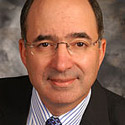01:03 PM
Reinvesting in Change: Retooling the Trading Desk
We have finished another earnings season and we've done it again - we have confounded analysts as the securities industry has enjoyed another banner quarter. That's four in a row, which is great news for us technologists. Opportunity is back: firms are thinking of growth instead of retrenchment and coffers are filling up as we move into a new budgeting and spending season.
As funding returns, trading-floor reinvestment is high on the priority list at securities firms, compared to the past few years, when floor rebuilds were on hold as technology investment capital dried up. As investment dollars increase, however, the focus on trading floors will increase, as they not only house the profit engine of many investment banks but also the business and technology surrounding trading, which has changed significantly since the last rebuild cycle.
And in tandem with evolving technology, trading also has experienced radical change over the past five years. Products have become more electronically traded, more model-based and more defined by speed than ever before. While trading has always been technology-driven, in many markets today, opportunity is gauged not in seconds but milliseconds.
This requires significant reengineering of firms' market-data, analysis, data-capture, order-management and order-routing technologies. These systems need to be latency-free and tuned so that computers read, analyze and make trading decisions before data even makes it to the screen. In accordance, we are seeing new data distribution technologies that are faster and more latency-free than aging distribution platforms.
Electronic-trading migration will force firms to re-examine how they manage customer relationships, as they transition their sales force away from transactional and toward strategic relationships. Accomplishing this shift will require additional communications technologies, including instant messaging (IM), Voice over IP (VoIP), video conferencing and compliance technologies.
IM, VoIP and video conferencing will allow firms to reach out to their trading partners more effectively, fostering more intimate relationships. Instant messaging provides a more immediate channel than e-mail; VoIP enables tight phone and data integration; and video conferencing provides a personal relationship with their salespeople even though they are communicating with each other less than they did before electronic trading.
Rebuilding trading floors will also prod firms to analyze how they configure their floors. Firms are rethinking the strategy of having traditional desktop workstations drive their trading platforms. They are looking to take the CPU out from underneath the trading desk and put it in rack-mounted units in the back office.
Rack-mounting workstations allows firms to save space, fit more traders on the floor and reduce the cost of personnel additions and moves, because workstations no longer need to be physically reconfigured as people move around the floor. Back-officing desktops also reduces firms' trading-floor cooling needs while facilitating backup and disaster recovery. Additionally, centralized workstations allow desktop repurposing when they're not in use, facilitating the reconfiguring of idle workstations for computationally challenging tasks, end-of-day pricing and risk-management needs.
Making the business of trading more efficient is a challenging job. IT enables technologists to hedge their strategic technology bets. As the securities industry continues to confound the analysts and remain profitable, this profitability will enable firms to reinvest in their businesses and technology to make them more competitive, more efficient and more agile than before.
Larry Tabb is founder and CEO of Westborough, Mass-based The Tabb Group, a financial-markets strategic-advisory firm [email protected]
Larry Tabb is the founder and CEO of TABB Group, the financial markets' research and strategic advisory firm focused exclusively on capital markets. Founded in 2003 and based on the interview-based research methodology of "first-person knowledge" he developed, TABB Group ... View Full Bio





















